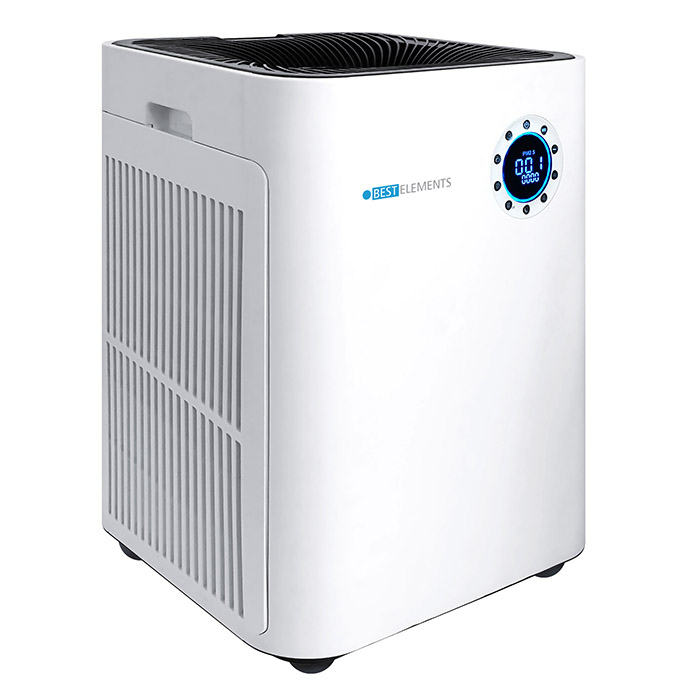Environmental pollutants in the air weaken our immune system
Little has been said about the concentration of particulate matter in our own four walls. The truth is that even in non-smoking homes, cooking, burning food, and using a fireplace emit significantly more particulate matter than inner-city limits allow. Studies show that the number of infectious diseases increases disproportionately in times of high particulate matter pollution. Poor air quality systematically puts a strain on the immune system. With air purifiers, air filters for home and work rooms, the indoor climate can be significantly improved. In addition, suitable air cleaners significantly minimize the risk of infection from aerosols, for example.
Effects of air pollution on human health
Waste products such as ash and harmful gases are released from the fuels we use. Acid rain is caused by the combination of toxic gases from smokestacks and exhaust fumes. Acid rain not only causes skin and lung diseases in humans, but also destroys vegetation.
The effects of air pollution on human health range from asthma and bronchitis to heart disease and lung cancer. The effects of pollution will be observed in healthy people and significantly in vulnerable and vulnerable groups. Then serious problems can arise. Older people are one of these groups. Older people are more vulnerable than the general population due to the decline in their physical capacity, physiological defense mechanisms and the occurrence of chronic diseases. Young children have an incompletely developed defense mechanism, higher breathing rates per body weight and are therefore more vulnerable. Exacerbations of diseases including asthma and chronic obstructive pulmonary disease (EPOC) have been found to be increasing in frequency. Lower standards of living are other factors affecting the ability to experience.
Source academyeurope.org
Air pollution promotes rheumatic diseases
Apparently, air pollution favors the development of rheumatic diseases such as joint rheumatism (rheumatoid arthritis, chronic polyarthritis). A recent Italian study revealed significant clues. Experts from the German Society for Rheumatology (DGRh) published these findings in Berlin.
Air pollution is one of the environmental factors that can increase the risk of disease the most. According to the WHO study project “Global Burden of Disease”, there were around five million premature deaths from air pollution worldwide in 2016. This trend has increased significantly over the past 30 years and, unless the right steps are taken, is likely to increase further over the next 20 years.
EU clean air bill
The German Environmental Aid is calling for a significant increase in the limit values for particulate matter and carbon dioxide. Limits for air pollutants such as particulate matter and nitrogen dioxide have increased significantly. The World Health Organization (WHO) calls for up to 80% drastic limit values for air pollution. This is urgently needed to protect the health of citizens.
Source German environmental aid












